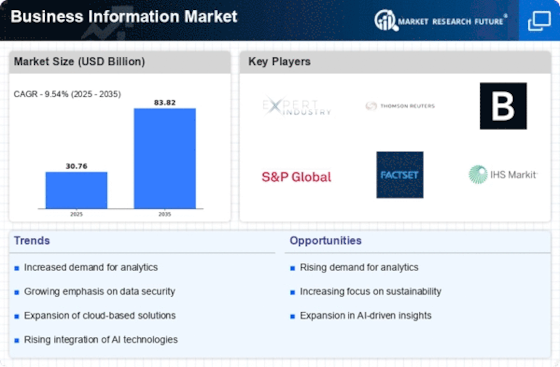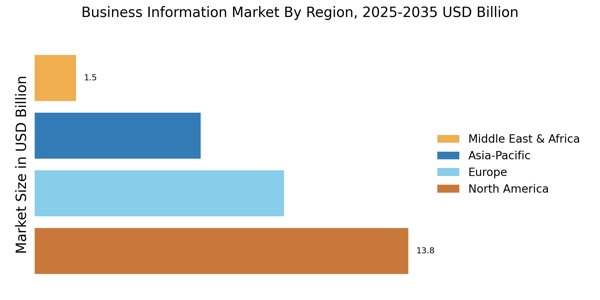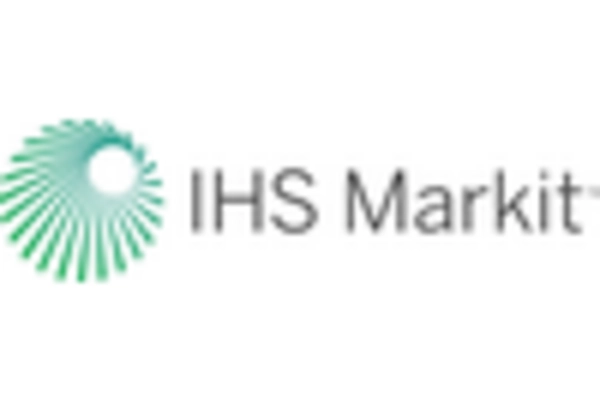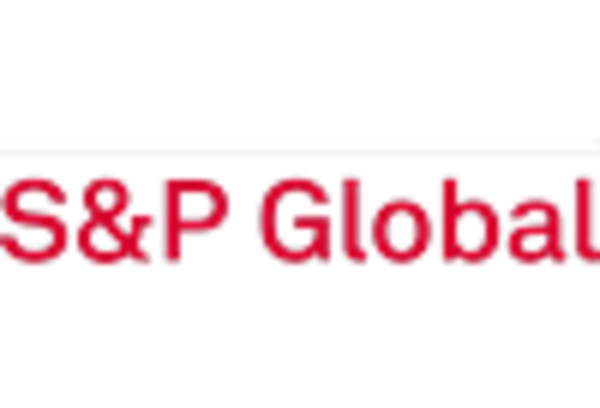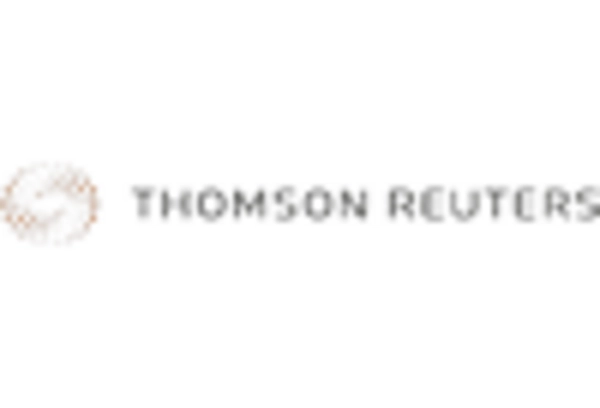Rise of Digital Transformation
The ongoing rise of digital transformation across various sectors appears to be a pivotal driver for the Business Information Market Industry. Organizations are increasingly adopting digital tools and platforms to enhance operational efficiency and decision-making processes. This shift is evidenced by a reported increase in investment in digital technologies, which reached approximately 2 trillion dollars in 2025. As businesses seek to leverage data for competitive advantage, the demand for comprehensive business information solutions is likely to surge. Consequently, firms that provide data analytics, market intelligence, and business insights are positioned to benefit significantly from this trend, as companies prioritize data-driven strategies to navigate the complexities of the modern marketplace.
Increased Focus on Data Security
An increased focus on data security is becoming a significant driver in the Business Information Market Industry. With the rise in cyber threats and data breaches, organizations are prioritizing the protection of sensitive information. This heightened awareness is leading to greater investments in cybersecurity measures, which are expected to exceed 300 billion dollars by 2025. As businesses seek to comply with stringent regulations and safeguard their data assets, the demand for business information solutions that emphasize security and compliance is likely to grow. Consequently, firms that can provide secure data management and analytics solutions may find themselves at a competitive advantage in this evolving market.
Growing Demand for Real-Time Data
The growing demand for real-time data is emerging as a crucial driver within the Business Information Market Industry. Businesses are increasingly recognizing the value of timely information in making informed decisions. This trend is reflected in the rising adoption of real-time analytics tools, which are projected to grow at a compound annual growth rate of 25% over the next five years. Organizations are leveraging real-time data to enhance customer experiences, optimize operations, and respond swiftly to market changes. As a result, providers of business information solutions that offer real-time insights are likely to experience heightened demand, as companies strive to remain agile and competitive in an ever-evolving landscape.
Expansion of Cloud-Based Solutions
The expansion of cloud-based solutions is a notable driver influencing the Business Information Market Industry. As organizations increasingly migrate to cloud environments, the demand for cloud-based business information services is expected to rise significantly. The cloud services market is projected to reach 1 trillion dollars by 2025, indicating a robust shift towards cloud computing. This transition allows businesses to access scalable and flexible information solutions, facilitating collaboration and data sharing across teams. Providers that offer cloud-based business information solutions are likely to benefit from this trend, as companies seek to enhance their operational capabilities and reduce infrastructure costs.
Emergence of Artificial Intelligence
The emergence of artificial intelligence (AI) technologies is poised to reshape the Business Information Market Industry. AI applications are increasingly being integrated into business information solutions, enabling organizations to derive deeper insights from their data. The AI market is projected to grow to 500 billion dollars by 2025, reflecting its transformative potential. Businesses are leveraging AI for predictive analytics, customer segmentation, and automated reporting, which enhances decision-making processes. As organizations recognize the value of AI-driven insights, the demand for business information solutions that incorporate advanced AI capabilities is likely to increase, positioning providers at the forefront of this technological evolution.


